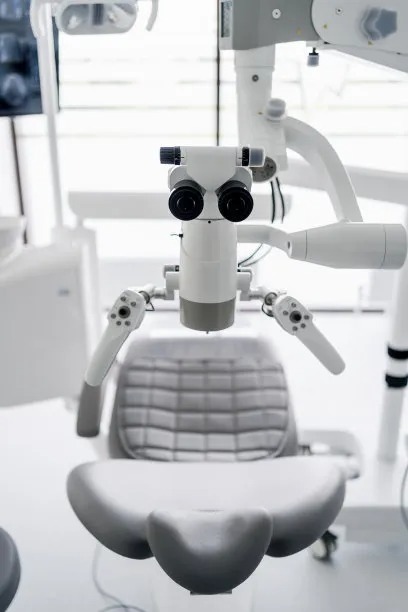Summary: This article delves into the complex relationship between periodontal disease and overall health, emphasizing its impact across different age groups and associated risk factors. Periodontal disease, often overlooked, can significantly affect not just oral health but also systemic well-being. We explore its ramifications in various demographics, including children, adults, and the elderly, while identifying key risk factors such as lifestyle choices, socioeconomic status, and existing health conditions. By understanding these connections, we highlight the importance of proactive dental care and its role in enhancing overall health and quality of life.
1. Impact on Childrens Health and Development

Periodontal disease in children can lead to various health issues that go beyond oral discomfort. Early onset periodontal disease can hinder proper tooth development, leading to malocclusion and impacts on speech. Children experiencing gum disease may also have difficulty eating, resulting in nutritional deficiencies that can affect their growth.
Furthermore, studies have shown that children with periodontal disease are at a higher risk for developing other health complications, such as diabetes and asthma. Inflammation caused by poor oral health can exacerbate these conditions, creating a cycle of health issues that can persist into adulthood.
Additionally, the psychosocial effects of periodontal disease in children should not be underestimated. Poor oral health can lead to low self-esteem and social stigma, impacting their ability to engage with peers comfortably and confidently.
2. Effects on Adults Health and Quality of Life
For adults, the impact of periodontal disease can be particularly severe, affecting professional and personal lives. Chronic periodontal disease is linked to systemic conditions such as cardiovascular disease, respiratory diseases, and diabetes. The bacteria from periodontal infections can enter the bloodstream, increasing the risk of serious health issues.
The economic implications are also significant, as adults grappling with periodontal disease may incur higher healthcare costs due to related health problems. Treatment for advanced periodontal disease can involve surgical procedures requiring time off work and additional financial resources.
Moreover, adults with gum disease may experience chronic discomfort, affecting their ability to perform daily activities and enjoy their social lives. The resulting anxiety or depression can lead to a further decline in overall health and well-being.
3. Consequences for the Elderly Population
The elderly are disproportionately affected by periodontal disease, which can exacerbate existing health concerns. As we age, changes in the immune system can make it more challenging to combat infections, increasing susceptibility to periodontal disease. Moreover, elderly patients often face polypharmacy, where the intake of multiple medications can result in dry mouth, a condition that raises the risk of gum disease.
The presence of periodontal disease in older adults is also associated with cognitive decline. Emerging research suggests that oral bacteria might contribute to the development of Alzheimers disease and other forms of dementia. Thus, maintaining oral health in the elderly is essential for preserving not just their dental health but their cognitive functioning as well.
Furthermore, periodontal disease can severely impact the quality of life for elderly individuals by causing pain, difficulty with eating, and potential isolation due to the embarrassment of poor oral health. This can create a detrimental cycle affecting their emotional health and social interactions.
4. Identifying Risk Factors for Periodontal Disease
Understanding the risk factors associated with periodontal disease is crucial for prevention and management. Poor oral hygiene, high sugar diets, and low socioeconomic status are significant contributors. Individuals with limited access to dental care are at a higher risk of developing gum disease, highlighting systemic inequalities in health care access.
Furthermore, lifestyle choices such as smoking and excessive alcohol consumption dramatically increase the risk of periodontal disease. These habits not only impair immune function but also exacerbate inflammation, making it essential for public health initiatives to address these factors.
Lastly, existing health conditions like diabetes and heart disease can predispose an individual to periodontal disease. Therefore, comprehensive management of these systemic issues is vital to improving oral health outcomes and thus overall well-being.
Summary:
This article outlines the diverse impacts of periodontal disease on various age groups, emphasizing the need for awareness and preventive care. By recognizing the links between oral health and systemic conditions, we can advocate for better oral hygiene practices and healthcare access for all demographics.
This understanding is essential for cultivating a healthier population, as periodontal disease is a modifiable risk factor influencing overall wellness. Integrating dental care into general health programs will ultimately lead to superior health outcomes.
This article is compiled by Vickong Dental and the content is for reference only
Vickong Dental
Vickong Dental is a large medical group established in Hong Kong in 2008 by professors from well-known medical universities in Guangdong and Hong Kong, as well as medical doctors from key national '985' universities (including Master's supervisors and senior professors). The chain of branches brings together expert dentists with PhDs and Master's degrees from Hong Kong and Mainland China, committed to providing high-quality dental treatment.
"Vickong Dental Practices the University Motto of 'Healing and Serving Society,' with a Stable Operation for Sixteen Years. It Has Been honored with Hong Kong Enterprise Leaders's Choice,' and is a Global Trusted Implant Center for the Nobel Implant System. Recommended by Hong Kong Metro Broadcast and Guangdong Television, it Serves Customers from Over Thirty Countries and Regions, Gaining the Trust and Favor of Citizens from the Guangdong-Hong Kong-Macau Greater Bay Area and Surrounding Cities.

Thousands of customers' unanimous praise
The most recognized and highly recommended dental service by customers in the Guangdong-Hong Kong-Macau Greater Bay Area
We Ensure You Receive Detailed Care and Attention Here
Hong Kong standards, Shenzhen prices, Your Trusted English-speaking dentists

Vickong Dental Medical-Grade Instrument Disinfection Process
Vickong Dental Medical-Grade Instrument Disinfection Process

Vickong Dental Chain: A Warm and Comfortable Environment for Treatment






Appointment Hours

Q&A
Why choose Vickong Dental?
Vickong Dental practices the university motto 「Medicine to Benefit Society」, with each branch bringing together highly qualified dentists with doctoral and master’s degrees from Hong Kong and the Mainland, and has maintained seventeen years of steady operation。Recipient of 「2024 Hong Kong Enterprise Leaders Brand」, 「2025 Hong Kong Enterprise Leaders Brand」, a Nobel Biocare Global Trusted Implant Center, and a brand recommended by Metro Radio Hong Kong and Guangdong TV。
To date, we have served customers from more than thirty countries and regions,earning exceptionally high word-of-mouth recognition and trusted recommendations from residents across the Guangdong-Hong Kong-Macao Greater Bay Area and surrounding cities
We have eight major branches in Zhuhai、Shenzhen,and a consultation and service assurance center in Hong Kong,so you can book a free consultation at any time for any questions,which is very reassuring.
If I do not accept the quotation after the CT scan, will I be charged??
No! As long as the actual treatment has not started, you will not be charged any fees.
Will there be any additional charges during the treatment process?
No, there won’t be any additional charges. Before treatment begins, we will clearly explain the treatment plan and its corresponding fees. Only after the patient agrees and signs the consent form will we proceed with the dental service.
Can I pay in Hong Kong dollars?
Yes. Vickong Dental accepts payment in Hong Kong dollars. The amount will be converted based on the exchange rate of the day, and the applicable rate will be clearly communicated to you in advance.
Can I reschedule my appointment at any time?
Yes. Please contact us via **WeChat** or **WhatsApp** as early as possible, providing your original appointment time and details, along with your preferred new date and time slot for rescheduling.













